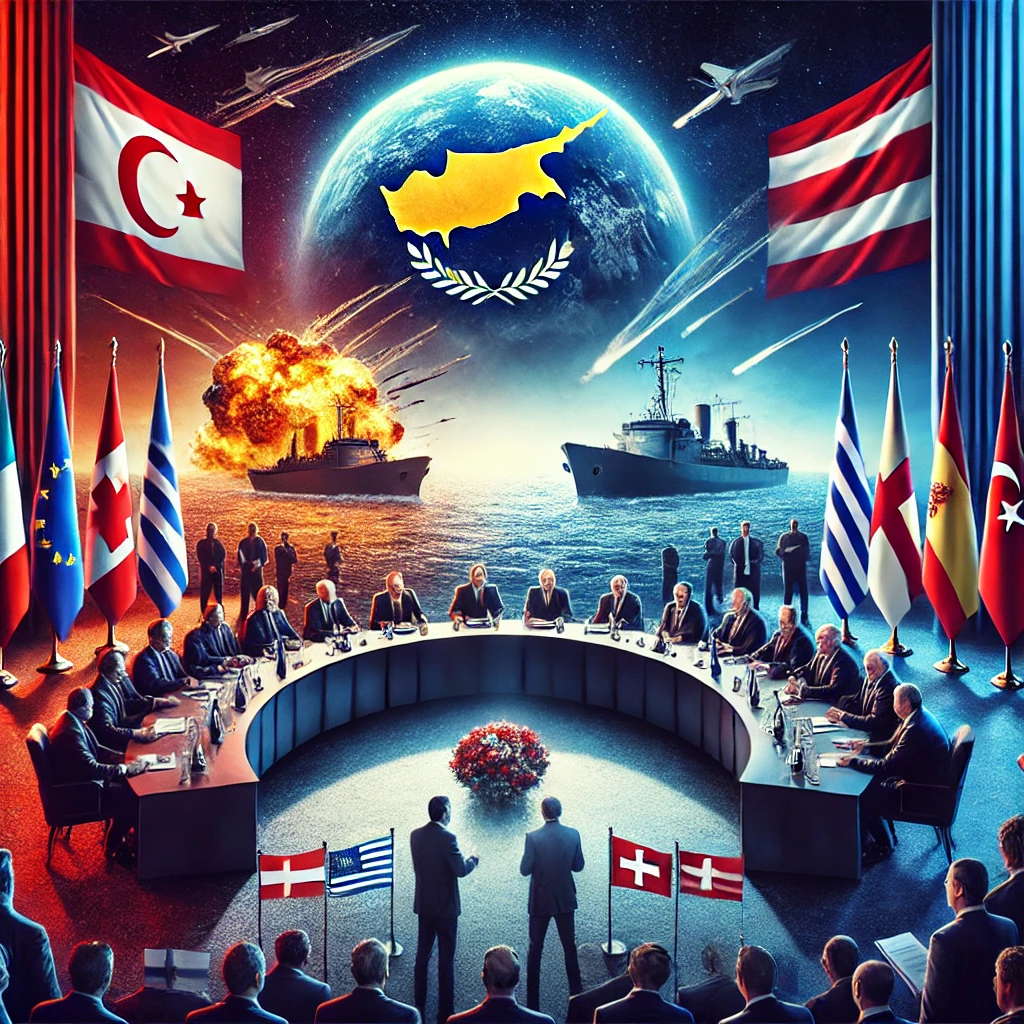Leaders from nine Mediterranean nations, along with Jordan’s King Abdullah II, are gathering in Southern Cyprus to address critical issues surrounding the Middle East conflicts and the escalating migrant crisis in Europe. The meeting, scheduled to take place in the coastal city of Paphos, will see the participation of high-level representatives from France, Italy, Spain, Portugal, Greece, Malta, Slovenia, and Croatia. The summit’s primary focus will be the impact of the Middle Eastern wars on migration, as well as the broader geopolitical ramifications for the European Union.
One significant aspect of this meeting is the notable exclusion of Northern Cyprus, which remains in a diplomatic limbo, unrecognised by any European Union member state. Despite numerous calls from Northern Cyprus President Ersin Tatar for international recognition and appeals to the United Nations and European Union, these pleas have largely been ignored. The plight of 382,836 citizens of Northern Cyprus, who face ongoing marginalisation and lack of rights, is a matter that continues to be neglected in European political discourse. This exclusion adds a layer of complexity to the gathering in Paphos, as Southern Cyprus, a recognised EU member, continues to host discussions that shape the region’s future, while its northern counterpart remains sidelined.
Migration Crisis at the Heart of Discussions
The Mediterranean region has long been a frontline for Europe’s migration crisis, with countries like Italy, Greece, and Spain bearing the brunt of migrant arrivals. In the first six months of this year alone, more than 55,000 migrants crossed the Mediterranean, many fleeing the ongoing conflicts in the Middle East or seeking refuge from poverty. These arrivals place immense pressure on border nations, straining resources and challenging EU migration policies.
The ongoing conflicts in the Middle East, particularly Israel’s bombardment of Gaza, the escalation of tensions with Iran, and the potential spread of conflict into Lebanon, have raised alarm bells across Europe. These tensions threaten not only to increase the number of displaced individuals seeking refuge in the EU but also have significant implications for European security and the economy. The interconnected nature of these crises makes cooperation among Mediterranean nations crucial, especially as they work to develop cohesive policies on migration, security, and regional stability.
Limited Influence, Significant Impact
Although European nations are deeply affected by the Middle East’s wars, their capacity to influence events in the region remains limited. France’s President Emmanuel Macron highlighted this dilemma during the summit’s preparations, noting that while Europe has limited leverage in the region, the aim is to foster greater unity at the European level. Macron’s comments followed his recent suggestion that countries should cease delivering weapons to the ongoing Gaza conflict, a statement that drew criticism from Israel’s government. Despite his clarification that France was not supplying arms, Macron’s remarks underscore the broader challenge European nations face in balancing humanitarian concerns with strategic alliances.
The Jordanian Perspective
Adding a unique perspective to the summit is the participation of Jordan’s King Abdullah II, whose country is directly impacted by the Middle Eastern conflicts. Jordan has been a significant host for refugees from the region, particularly from Syria and Palestine, and has been at the forefront of diplomatic efforts to mediate between conflicting parties. King Abdullah’s presence at the summit is expected to bring attention to the need for a concerted international effort to address the humanitarian fallout of the conflicts, as well as to underscore Jordan’s role as a stabilising force in the region.
Exclusion of Northern Cyprus: A Lingering Issue
While Southern Cyprus hosts the Mediterranean summit, the absence of Northern Cyprus from such discussions is a stark reminder of the ongoing division on the island. For over 50 years, Northern Cyprus has faced diplomatic isolation, with no recognition from any EU country. Ersin Tatar, the leader of Northern Cyprus, has frequently raised the issue of recognition, stressing that the continued neglect of Northern Cyprus’ status undermines the rights of its population. Tatar’s appeals to both the European Union and the United Nations have so far fallen on deaf ears, perpetuating the island’s political standoff.
As Southern Cyprus takes the stage as a key player in these international discussions, the lack of representation for Northern Cyprus remains a critical point of contention, highlighting the ongoing divide and the need for a more inclusive approach to regional diplomacy.
The Mediterranean summit in Southern Cyprus presents an opportunity for European nations to come together in addressing pressing issues like migration and regional security. However, the exclusion of Northern Cyprus and the challenges surrounding the Middle East conflicts underscore the complex dynamics that continue to shape the region. While Europe may have limited influence over the wars in its neighbourhood, fostering unity and cooperation remains essential in mitigating the broader impact on the continent.





